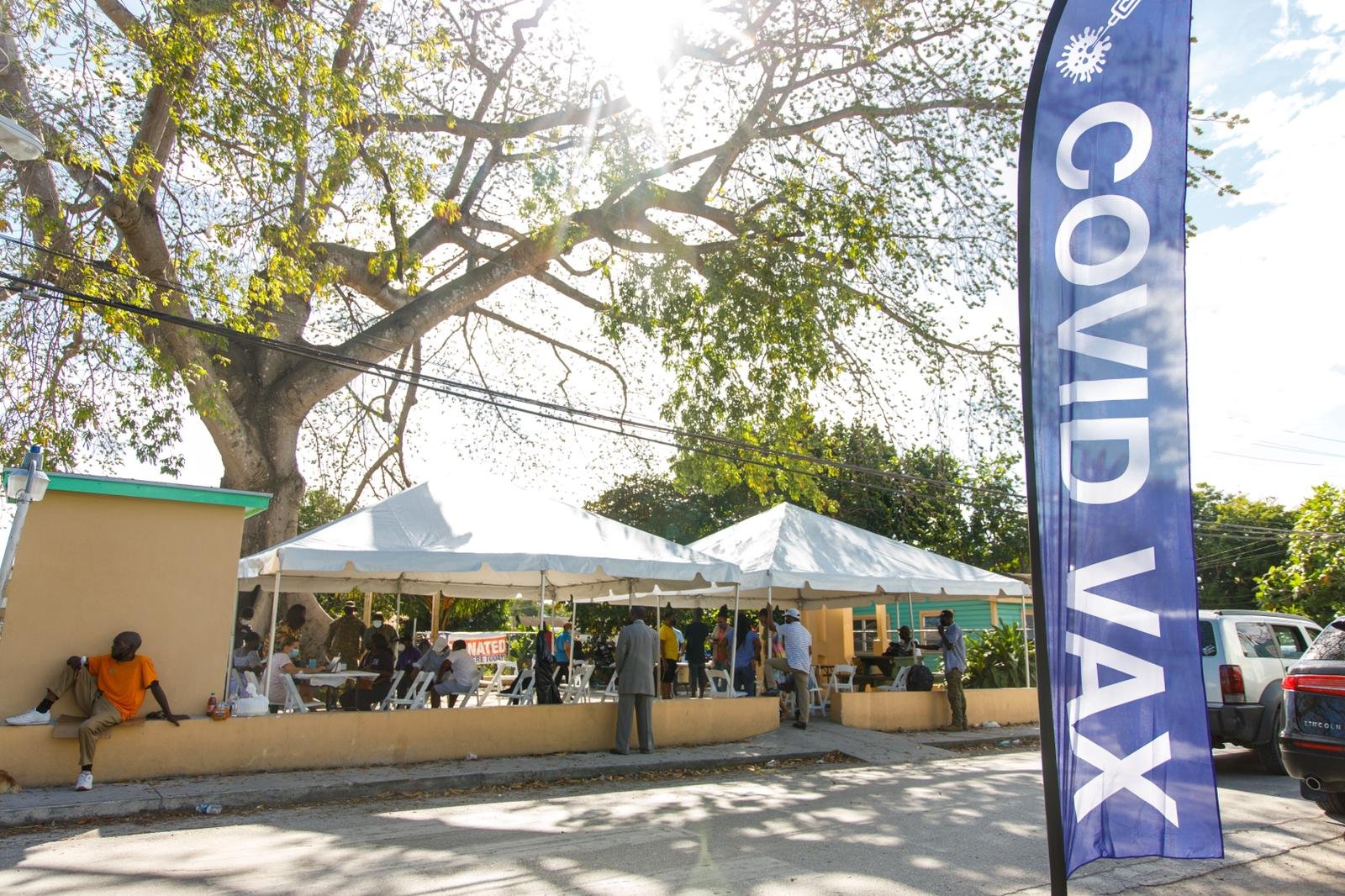Health minister hopes 80% vaccinated before end of year
NASSAU, BAHAMAS — With a surplus of vaccines in the country and continued vaccination hesitancy, the government is moving to decentralize vaccination centers and beef up its education campaign.

During a pop-up vaccination initiative at Yellow Elder Park on Saturday, Minister of Health Dr Michael Darville said the government is moving aggressively to get vaccines in arms as wastage becomes a growing concern.
“We have a surplus of vaccines,” Darville said.
“We have to get these vaccines into the arms of residents throughout our country and to citizens and we will continue to push as hard as we can, taking into consideration that we don’t want to waste vaccines.”
He noted that if the government finds that the stock of vaccines is larger than the country can handle, there is a program to allow the vaccines to be donated regionally.
Darville said: “We are now in a new phase where we are going to work heavily on public education, beef up our PR and rather than large vaccination centers, we feel the time has come for us to be in smaller areas and take the vaccine to people.”
He said the government hopes to decentralize COVID-19 vaccines and make them available at private institutions.
Asked whether the move will come at a cost to Bahamians, Darville said: “Vaccines will always be free, but when you take the logistics, the reporting, and you move that to a clinic, there should be and there are some things we are working out on how to compensate for the service.
“To put that load on private facilities without some degree of compensation, I think, is a bit unfair.
“We would like to make sure vaccines are available free of charge and if a person goes to a private facility, we have to find a way that the physician has some degree of compensation.”
Darville could not give a date for the initiative but said it would happen in the short term.
“We cannot wait much longer because we have a large supply of vaccines and we need to get these vaccines into the arms of Bahamians and residents. Time is of great importance,” he said.
As of February 12, a total of 160,655 people had been fully vaccinated, including Bahamians and residents who were fully vaccinated aboard and registered with the ministry.
The country has surpassed 50 percent vaccination of its eligible population.
Darville said he hopes the country reaches 70 percent to 80 percent vaccinated before the end of the year, being in line with the Pan American Health Organization’s (PAHO) global goal.
He noted that the healthcare sector is at 85 percent vaccinated.
Dr Eldonna Boisson, the PAHO/World Health Organization (WHO) country representative for The Bahamas and Turks and Caicos, said the country still has a ways to go with vaccine hesitancy being really high — as is being seen in other countries in the region.
“What we’ve seen in The Bahamas [is] we had a steady increase in vaccination coverage until the latter part of last year, and then we hit a wall and the hesitancy set in and the number of persons coming in to be vaccinated has been decreasing,” Boisson said.
“We’ve seen this trend in the rest of the English-speaking Caribbean. It’s very strange.
“We are vaccine babies. We were born in vaccine times where we have been vaccinated and we vaccinate our children, but for some reason, there is a lot of resistance.”
She said there is a need to change strategies and inform the public as well as give them direct access to the jab, underscoring that the vaccines in country have a “shelf life”.


















